Description
ABSTRACT
Negotiating an Electronic Bill of Lading under International and Nigeria’s Legal Frameworks
Onyekachi Kenneth Ugwuokpe*
The revolution in information and communication technology has radically altered the nature and methods of human and business relations. These developments have put the nature and methods of interactions between humans and businesses under legal and technical pressures. This is because whereas information and communication technology are evolving day by day, the longstanding contractual rules of engagement do not adapt fast enough to accommodate the new technological realities. The gap between information and communication technology and the contractual rules of engagement is no less obvious in maritime electronic commerce. The emergence of electronic bills of lading has contributed significantly to exposing the inadequacy of the existing traditional legal rules and principles in dealing with information and communication technological advancements to the satisfaction of all the players in the maritime trade. An electronic bill of lading can only be successful if it can fulfil the same functions as a paper bill to the satisfaction of all the interests involved in a maritime transaction. This article sets out to analyse the legal and practical challenges associated with the negotiation of electronic bills of lading under international and Nigeria’s legal frameworks.
INTRODUCTION
In our contemporary internet age, business transactions are increasingly conducted in electronic settings.1 The bill of lading has always responded to the commercial needs of merchants of succeeding generations.2 Thus, it has passed through many phases of development to its present electronic nature.3 Transport documents, particularly the bill of lading, are crucial to international trade transactions.4 A bill of lading performs three main functions:5 it serves as a receipt for the goods received for shipment or, which were actually shipped; it confirms or evidences the contract of carriage; and, it serves as the document of title in relation to the goods shipped.6 The third function of serving as a document of title is the most significant of the three functions of a bill of lading, particularly for the purpose of this article. It is the document-of-title function that gives a bill of lading its special character among shipping documents.7
* LLB (HONS) BL Nigeria, LL.M (Dalhousie). The author is currently an Independent Document Review subcontractor with Ernst & Young LLP Toronto, Canada.
This paper was adapted from the author’s LLM thesis, supervised by Prof Aldo Chircop, at the Schulich School of Law, Dalhousie University, Halifax, Canada. He is grateful to the Dalhousie University Faculty of Graduate Studies, Schulich School of Law and the Law Foundation of Nova Scotia for the funding for the LLM program.
- See Ian R Kerr, ‘Ensuring the Success of Contract Formation in Agent-Mediated Electronic Commerce’ [2001] Electronic Commerce Research 183-4.
- See Daniel E Murray, ‘History and Development of the Bill of Lading’ (1983) 37 University of Miami Law Review [689], [690-3]; B Mclaughlin, ‘The Evolution of the Ocean Bill of Lading Chester’ (1926) 35 (1) Yale Law Journal [549-555].
- ibid.
- Marek Dubovec, ‘The Problems and Possibilities for Using Electronic Bills of Lading as Collateral’ (2006) 23 Arizona Journal of Int’l & Comp Law [437], [438].
- Miriam Goldby, Electronic Documents in Maritime Trade: Law and Practice (OUP, Oxford 2013) 88.
- ibid.
- Simon Baughen, Shipping Law (3rd edn, Routledge, London 2004) 8.

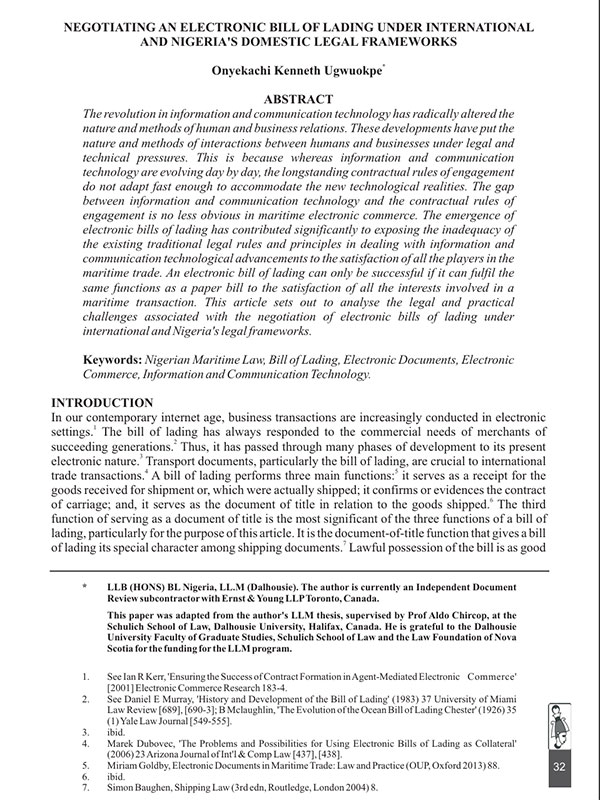
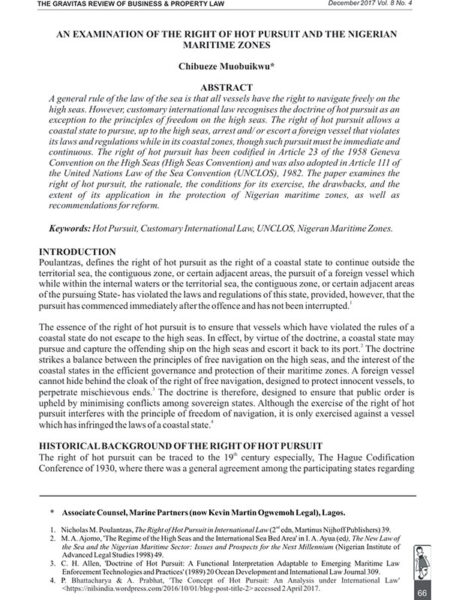
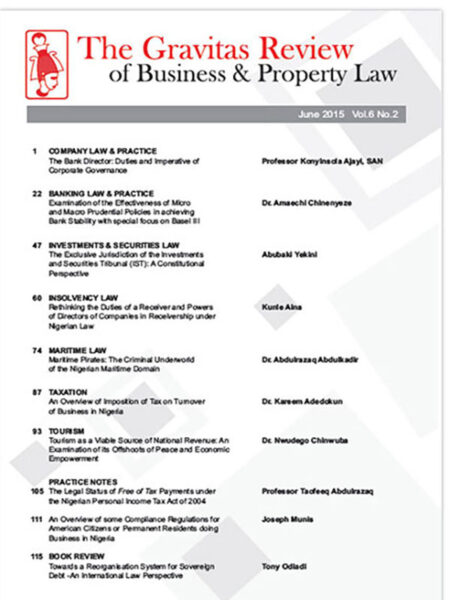
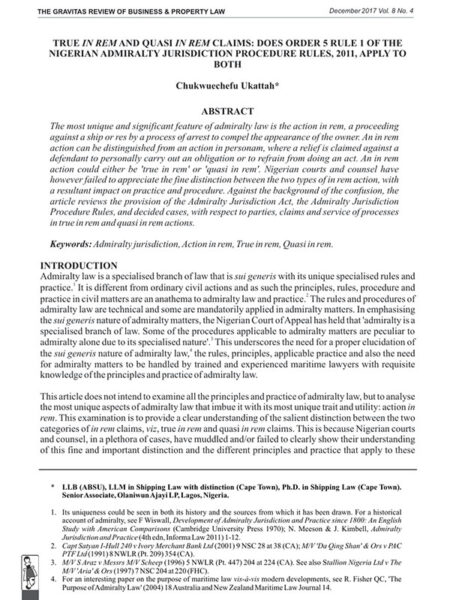



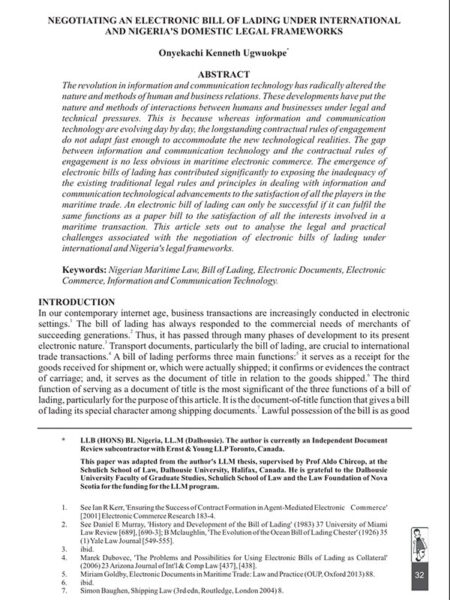
Reviews
There are no reviews yet.